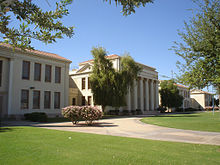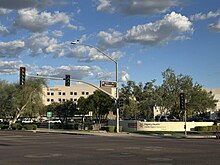

Attorney-client privilege is a crucial legal concept that ensures open and honest communication between an attorney and their client. This privilege protects the confidentiality of discussions and information exchanged between a lawyer and their client, allowing individuals to freely seek legal advice without fear of their private conversations being used against them in court.
The purpose of attorney-client privilege is to encourage clients to fully disclose all relevant information to their attorneys, enabling lawyers to provide the best possible legal advice and representation. This privilege also helps maintain trust between clients and attorneys, fostering a strong attorney-client relationship built on confidentiality and mutual respect.
In essence, attorney-client privilege serves as a fundamental safeguard for individuals seeking legal counsel, guaranteeing that sensitive information shared with an attorney remains confidential and cannot be disclosed without the client's permission. This protection is essential for upholding the integrity of the legal system and ensuring that individuals can freely seek justice without compromising their privacy or rights.
Attorney-client privilege is a crucial aspect of the legal system that ensures open and honest communication between lawyers and their clients. This privilege allows clients to freely discuss their legal matters with their attorneys without fear of those conversations being disclosed to others.
The scope of attorney-client privilege is broad and encompasses all communications between a client and their attorney that are made in confidence for the purpose of seeking legal advice or representation. This includes not only verbal conversations, but also written correspondence, emails, text messages, and any other form of communication.
It is important to note that attorney-client privilege only applies when the communication is made in the context of an attorney-client relationship and for the purpose of seeking legal advice. If a communication is made in furtherance of a crime or fraud, or if it involves discussions about future harm or illegal activities, then the privilege may not apply.
Overall, the scope of attorney-client privilege is intended to protect the confidentiality of communications between clients and their attorneys in order to promote trust and candor in the legal process. This privilege plays a critical role in ensuring that clients are able to fully disclose all relevant information to their attorneys without fear of that information being used against them.

Understanding medical malpractice laws in Chandler is crucial for both healthcare professionals and patients alike.. These laws are in place to protect individuals from negligence or misconduct on the part of medical practitioners, ensuring that they receive the quality care they deserve. In Chandler, medical malpractice laws outline the responsibilities and obligations of healthcare providers, as well as the rights of patients who have been harmed by their actions.
Posted by on 2024-11-18

If you believe that you have been a victim of medical malpractice, it can be a confusing and overwhelming experience.. It is important to take certain steps to protect your rights and seek justice for any harm that may have been caused by negligent medical care. The first step you should take if you suspect medical malpractice is to gather all relevant documentation related to your medical treatment.
Posted by on 2024-11-18

Choosing the right medical malpractice lawyer in Chandler can be a daunting task, but it is crucial to ensure that you receive the best possible representation for your case.. With so many options available, it's important to take the time to research and find a lawyer who has the knowledge and experience needed to handle your specific situation. One of the first things to consider when selecting a medical malpractice lawyer is their experience in handling similar cases.
Posted by on 2024-11-18

Medical malpractice cases can take many forms, but there are several common types that we see in Chandler and throughout the healthcare system.. These cases often involve a breach of the standard of care that a healthcare provider is expected to provide to their patients. One common type of medical malpractice case is misdiagnosis or delayed diagnosis.
Posted by on 2024-11-18
Attorney-client privilege is a fundamental aspect of the legal system that ensures open and honest communication between lawyers and their clients. This privilege allows clients to speak freely with their attorneys without fear of their conversations being disclosed in court. However, there are certain exceptions to this privilege that can arise under specific circumstances.
One common exception to attorney-client privilege is when the client waives the privilege by voluntarily disclosing information to a third party. If a client chooses to share details of their legal discussions with someone outside of the attorney-client relationship, they may lose the protection of confidentiality that comes with the privilege.
Another exception occurs when there is a threat of harm or illegal activity. If an attorney becomes aware that their client intends to commit a crime or pose harm to themselves or others, they may be required to disclose this information in order to prevent harm from occurring. In such cases, the attorney's duty to uphold the law and protect public safety takes precedence over maintaining confidentiality.
Additionally, if there is a dispute between an attorney and their client regarding legal fees or services rendered, communications related to these matters may not be protected by attorney-client privilege. The courts may require disclosure of such communications in order to resolve disputes and ensure fair treatment for both parties involved.
In conclusion, while attorney-client privilege is a crucial component of the legal system that fosters trust and effective representation, there are exceptions that can arise under certain circumstances. It is important for clients and attorneys alike to understand these exceptions in order to navigate potential challenges while upholding ethical standards within the legal profession.

Maintaining confidentiality in the attorney-client relationship is crucial for upholding the integrity of the legal system. The attorney-client privilege provides a safe space for clients to share sensitive information with their attorneys without fear of it being disclosed to anyone else. This trust between lawyer and client allows for open and honest communication, which is essential for building a strong defense or pursuing justice.
Confidentiality also helps protect the rights and interests of clients. By keeping their conversations private, attorneys can better represent their clients' best interests without any external interference. Clients can feel secure knowing that what they discuss with their lawyer will remain confidential, allowing them to be fully transparent about their concerns, fears, and goals.
Furthermore, maintaining confidentiality in the attorney-client relationship promotes fairness and equality within the legal system. Allowing clients to speak freely without the risk of their words being used against them ensures a level playing field where everyone has equal access to justice.
In conclusion, the importance of maintaining confidentiality in the attorney-client relationship cannot be overstated. It is a cornerstone of trust, fairness, and effective representation that benefits both clients and the legal system as a whole. By upholding this privilege, attorneys can ensure that their clients receive the best possible guidance and representation while protecting their rights and interests.
Attorney-client privilege is a fundamental legal concept that protects the confidentiality of communications between an attorney and their client. This privilege ensures that clients can freely discuss their legal matters with their attorneys without fear of disclosure to third parties.
One example of the application of attorney-client privilege can be seen in the case of United States v. Zolin. In this case, the court ruled that communications between an attorney and their client are privileged unless they fall under certain exceptions, such as when the communication was made in furtherance of a crime or fraud.
Another example is the case of Swidler & Berlin v. United States, where the Supreme Court held that attorney-client privilege survives the death of a client. This ruling reaffirmed the importance of protecting confidential communications between attorneys and their deceased clients.
Overall, these examples illustrate how attorney-client privilege plays a crucial role in ensuring open and honest communication between attorneys and their clients. By upholding this privilege, the legal system promotes trust and confidence in the attorney-client relationship, allowing clients to seek legal advice without fear of their conversations being disclosed to others.
Attorney-client privilege is a fundamental principle in the legal profession that ensures open and honest communication between attorneys and their clients. This privilege allows clients to share confidential information with their lawyers without fear of it being disclosed to others.
However, this privilege comes with ethical considerations for attorneys. One of the most important aspects is maintaining confidentiality. Attorneys have a duty to keep all communications with their clients confidential, even after the attorney-client relationship has ended. This means that they cannot disclose any information shared by the client without their consent, except in very specific circumstances such as when required by law.
Another ethical consideration is ensuring that the client understands the limitations of attorney-client privilege. Attorneys must clearly explain to their clients what information is protected under this privilege and what could potentially be disclosed. It is important for clients to be fully informed so they can make informed decisions about what they share with their lawyer.
Attorneys also have a duty to uphold the integrity of the legal system. This means that they cannot use attorney-client privilege to assist clients in committing illegal or unethical acts. If an attorney becomes aware of criminal activity or fraud, they have an obligation to take appropriate action, even if it means breaching confidentiality.
Overall, ethical considerations for attorneys regarding attorney-client privilege are essential for maintaining trust and confidence in the legal profession. By upholding these principles, attorneys can ensure that they are serving their clients' best interests while also upholding the integrity of the legal system.
Chandler, Arizona | |
|---|---|
City | |
 Aerial view of Chandler | |
 Location in Maricopa County, Arizona | |
| Coordinates: 33°18′N 111°50′W / 33.300°N 111.833°W | |
| Country | United States |
| State | |
| County | Maricopa |
| Founded | May 17, 1912 |
| Government | |
| • Type | Council-Manager |
| • Mayor | Kevin Hartke[1] |
| Area | |
| • City | 65.55 sq mi (169.77 km2) |
| • Land | 65.48 sq mi (169.58 km2) |
| • Water | 0.07 sq mi (0.18 km2) |
| Elevation | 1,211 ft (370 m) |
| Population (2020)[2] | |
| • City | 275,987 |
| • Estimate (2022)[2] | 280,711 |
| • Rank | US: 78th |
| • Density | 4,226.4/sq mi (1,627.45/km2) |
| • Metro | 4,948,203 |
| • Demonym | Chandlerite |
| Time zone | UTC−7 (MST (no DST)) |
| ZIP Codes | 85224, 85225, 85226, 85286, 85248, 85249 |
| Area code | 480 |
| FIPS code | 04-12000 |
| GNIS feature ID | 2409433[3] |
| Website | www |
Chandler is a city in Maricopa County, Arizona, United States, and a suburb in the Phoenix-Mesa-Chandler Metropolitan Statistical Area. It is the fourth-most populous city in Arizona, after Mesa, Tempe, and Phoenix. Chandler is considered to be a part of the East Valley.
As of the 2020 census, the population of Chandler was 275,987,[2] up from 236,123 at the 2010 census.[4] Chandler is a commercial and tech hub for corporations like Intel, Northrop Grumman, Wells Fargo, PayPal and Boeing.
In 1891, Dr. Alexander John Chandler, a Canadian and the first veterinary surgeon in the Arizona Territory, settled on a ranch south of Mesa and studied irrigation engineering. By 1900, he had acquired 18,000 acres (73 km2) of land and began drawing up plans for a town-site on what was then known as the Chandler Ranch. The town-site office opened on May 16, 1912.
The original town-site was bounded by Galveston Street to the north, Frye Road to the south, Hartford Street to the west, and Hamilton Street to the east.[5] By 1913, a town center was established, featuring the Hotel San Marcos, which also had the first grass golf course in the state. Chandler High School was established in 1914. Chandler was officially incorporated on February 16, 1920, after 186 residents petitioned the Maricopa County Board of Supervisors to approve incorporation.[citation needed]
Most of Chandler's economy was sustained during the Great Depression (though the Depression was to blame for the cancellation of a second San Marcos hotel), but the cotton crash a few years later had a much deeper impact on the city's residents. A. J. Chandler lost his San Marcos hotel to creditors as a result.[6] Later, the founding of Williams Air Force Base in 1941 led to a small surge in population, but Chandler still only held 3,800 people by 1950.[citation needed]
By 1980, the population had grown to 30,000, and it has since paced the Phoenix metropolitan area's high rate of growth, with suburban residential areas and commercial use areas swallowing former agricultural plots. The population has nearly doubled in the last twenty years. Some of this growth was fueled by the establishment of manufacturing plants for communications and computing firms such as Microchip, Motorola and Intel.
According to the 2020 census, Chandler has a total area of 65.55 square miles (169.8 km2), of which 0.07 square miles (0.18 km2), or 0.11%, are listed as water.[2] The center of the city, along Arizona State Route 87, is 22 miles (35 km) southeast of Downtown Phoenix.
Chandler is in proximity to/borders the San-Tan mountain range. The San-Tan mountains are in the jurisdiction of the Gila River Indian Community.
Chandler is divided into three parts: North Chandler, West Chandler and South Chandler, each being divided by the Loop 202 (Santan Freeway) and Loop 101 (Price Freeway).
| Climate data for Chandler, AZ | |||||||||||||
|---|---|---|---|---|---|---|---|---|---|---|---|---|---|
| Month | Jan | Feb | Mar | Apr | May | Jun | Jul | Aug | Sep | Oct | Nov | Dec | Year |
| Record high °F (°C) | 89 (32) |
95 (35) |
99 (37) |
106 (41) |
118 (48) |
116 (47) |
119 (48) |
115 (46) |
113 (45) |
107 (42) |
97 (36) |
86 (30) |
119 (48) |
| Mean daily maximum °F (°C) | 67 (19) |
71 (22) |
77 (25) |
85 (29) |
94 (34) |
104 (40) |
106 (41) |
104 (40) |
99 (37) |
89 (32) |
75 (24) |
67 (19) |
87 (30) |
| Daily mean °F (°C) | 54 (12) |
58 (14) |
63 (17) |
70 (21) |
78 (26) |
87 (31) |
92 (33) |
90 (32) |
85 (29) |
74 (23) |
61 (16) |
54 (12) |
72 (22) |
| Mean daily minimum °F (°C) | 41 (5) |
45 (7) |
49 (9) |
54 (12) |
61 (16) |
70 (21) |
77 (25) |
76 (24) |
70 (21) |
59 (15) |
47 (8) |
40 (4) |
57 (14) |
| Record low °F (°C) | 15 (−9) |
19 (−7) |
24 (−4) |
30 (−1) |
37 (3) |
43 (6) |
54 (12) |
51 (11) |
40 (4) |
30 (−1) |
22 (−6) |
17 (−8) |
15 (−9) |
| Average precipitation inches (mm) | 1.01 (26) |
1.03 (26) |
1.19 (30) |
0.33 (8.4) |
0.17 (4.3) |
0.06 (1.5) |
0.89 (23) |
1.14 (29) |
0.89 (23) |
0.81 (21) |
0.77 (20) |
0.98 (25) |
9.20 (234) |
| Source: The Weather Channel[7] | |||||||||||||
| Census | Pop. | Note | %± |
|---|---|---|---|
| 1930 | 1,378 | — | |
| 1940 | 1,239 | −10.1% | |
| 1950 | 3,799 | 206.6% | |
| 1960 | 9,531 | 150.9% | |
| 1970 | 13,763 | 44.4% | |
| 1980 | 29,673 | 115.6% | |
| 1990 | 89,862 | 202.8% | |
| 2000 | 176,581 | 96.5% | |
| 2010 | 236,123 | 33.7% | |
| 2020 | 275,987 | 16.9% | |
| 2022 (est.) | 280,711 | [8] | 1.7% |
| U.S. Decennial Census[9] | |||
| Race / Ethnicity (NH = Non-Hispanic) | Pop 2000[10] | Pop 2010[11] | Pop 2020[12] | % 2000 | % 2010 | % 2020 |
|---|---|---|---|---|---|---|
| White alone (NH) | 121,168 | 145,724 | 147,119 | 68.62% | 61.72% | 53.31% |
| Black or African American alone (NH) | 5,821 | 10,580 | 15,564 | 3.30% | 4.48% | 5.64% |
| Native American or Alaska Native alone (NH) | 1,628 | 2,715 | 3,850 | 0.92% | 1.15% | 1.39% |
| Asian alone (NH) | 7,345 | 19,119 | 32,710 | 4.16% | 8.10% | 11.85% |
| Pacific Islander alone (NH) | 222 | 365 | 571 | 0.13% | 0.15% | 0.21% |
| Some Other Race alone (NH) | 301 | 369 | 1,237 | 0.17% | 0.16% | 0.45% |
| Mixed Race or Multi-Racial (NH) | 3,037 | 5,443 | 12,679 | 1.72% | 2.31% | 4.59% |
| Hispanic or Latino (any race) | 37,059 | 51,808 | 62,257 | 20.99% | 21.94% | 22.56% |
| Total | 176,581 | 236,123 | 275,987 | 100.00% | 100.00% | 100.00% |
As of the 2022[update] American Community Survey estimates, there were 280,684 people and 106,712 households.[13][14] The population density was 4,276.2 inhabitants per square mile (1,651.1/km2). There were 113,092 housing units at an average density of 1,722.9 per square mile (665.2/km2).[15][16][14] The racial makeup of the city was 56.0% White, 13.4% Asian, 7.6% Black or African American, 4.4% some other race, 1.0% Native American or Alaskan Native, and 0.1% Native Hawaiian or Other Pacific Islander, with 17.5% from two or more races.[14] Hispanics or Latinos of any race were 21.2% of the population.[14]
Of the 106,712 households, 34.4% had children under the age of 18 living with them, 24.2% had seniors 65 years or older living with them, 50.7% were married couples living together, 7.4% were couples cohabitating, 18.3% had a male householder with no partner present, and 23.6% had a female householder with no partner present.[13] The median household size was 2.61 and the median family size was 3.12.[13]
The age distribution was 23.8% under 18, 8.9% from 18 to 24, 27.9% from 25 to 44, 26.4% from 45 to 64, and 13.0% who were 65 or older. The median age was 37.0 years.[17] For every 100 females, there were 105.8 males.[14]
The median income for a household was $98,664, with family households having a median income of $116,362 and non-family households $66,304. The per capita income was $50,247.[18][19] Out of the 279,322 people with a determined poverty status, 7.6% were below the poverty line. Further, 9.3% of minors and 7.6% of seniors were below the poverty line.[20]
In the survey, residents self-identified with various ethnic ancestries. People of German descent made up 13.0% of the population of the city, followed by Irish at 10.1%, English at 8.5%, American at 5.7%, Italian at 4.5%, Polish at 1.9%, Scottish at 1.7%, French at 1.6%, Arab at 1.5%, Sub-Saharan African at 1.5%, Norwegian at 1.2%, Dutch at 1.1%, Swedish at 1.0%, French Canadian at 0.6%, Russian at 0.6%, Scotch-Irish at 0.5%, and Greek at 0.5%.[13]
Computer chip manufacturer Intel has two locations in Chandler. Other high-technology manufacturing firms have partnerships with Chandler,[21] their operations employing approximately 25% of non-government workers in 2007.[22]
Since 2003, more than 2,900 jobs and investments totalling $3 billion have been created along the Price and Santan freeways,[23] in the Price Road Corridor.[24] The 1,300,000-square-foot (120,000 m2) Chandler Fashion Center, opened in 2001.
Companies headquartered in Chandler include Keap, Microchip, and Rogers. Bashas' headquarters is in a county island surrounded by Chandler.
According to the City of Chandler Economic Development Division,[25] leading employers in the city are:
| # | Employer | # of Employees |
|---|---|---|
| 1 | Intel | 12,000 |
| 2 | Wells Fargo | 5,500 |
| 3 | Chandler Unified School District | 4,900 |
| 4 | Bank of America | 3,600 |
| 5 | Chandler Regional Medical Center / Dignity Health | 2,500 |
| 6 | Northrop Grumman | 2,150 |
| 7 | Chandler–Gilbert Community College | 1,900 |
| 8 | City of Chandler | 1,800 |
| 9 | Microchip Technology (HQ) | 1,700 |
| 10 | NXP Semiconductors | 1,700 |
| 11 | PayPal | 1,500 |
| 12 | Insight Enterprises | 1,400 |
| 13 | Microchip Technology | 1,500 |
| 14 | Verizon | 1,400 |
| 15 | Bashas' (HQ and Distribution Center) | 1,100 |

Chandler holds an annual Ostrich Festival at Tumbleweed Park[26] to commemorate when ostrich farms in the area produced plumes for women's hats during the 1910s.[citation needed]
Chandler also holds an annual ceremony to light a tree made from tumbleweeds; a ceremony founded in 1957 when Chandler sought an alternative way to decorate the city during the Christmas holidays.[27]
Venues, galleries and museums include:
Several sites in Chandler are listed on the National Register of Historic Places, including the McCullough–Price House and the San Marcos Hotel.[30]
The Chandler Public Library serves Chandler and the greater East Valley. The main library is in Downtown Chandler, with two branches elsewhere in the city: Sunset, Basha (shared with Basha High School), and Hamilton (shared with Hamilton High School).

Tumbleweed Park hosts the annual Ostrich Festival, the Fourth of July Fireworks Festival and the annual Day of Play. It features a recreational center with equipment suited for fitness.[31]
Hamilton Aquatic Center is a shared-use aquatic facility, located within Hamilton High School's campus.[32]
Nozomi Aquatic Center is a shared-use aquatic facility which includes a 25 yard, 8-lane competition pool.[33]
Veterans Oasis Park is located at the city's highest point, at 1,311 feet (400 m).[34] It includes a wildlife preservation and designated horse and walking trails.[35]
Chandler is represented by a mayor, a vice mayor and five city council members. The vice mayor is elected by the city council from among its members. The mayor, vice mayor and council members represent the entire city and are not elected from districts or wards.[36]
Kevin Hartke was elected to his second term as mayor in 2023.[36]

The north central section of the city and the western "leg" of the city are within Arizona's 4th congressional district, served by Representative Greg Stanton, a Democrat. The rest of Chandler is within Arizona's 5th congressional district, served by Representative Andy Biggs, a Republican.
Chandler's western "leg" and a small, narrow portion of the adjacent northern part of the city are within Arizona's 18th Legislative District, served by Representatives Denise Epstein and Jennifer Jermaine, and Senator Sean Bowie, all Democrats. The rest of the city is in Arizona's 17th Legislative District, served by Representatives Jennifer Pawlik and Jeff Weninger, and Senator J. D. Mesnard, one Democrat and two Republicans.

Chandler is served by the Chandler Unified School District, Kyrene Elementary School District, Tempe Union High School District, Mesa Public Schools, and Gilbert Public Schools.[citation needed]
Catholic and charter schools include Basis Schools, Seton Catholic Preparatory, and Legacy Traditional Schools.[37]
Post-secondary educational institutions located in Chandler include: The University of Arizona Chandler,[38] International Baptist College, and the two-year Chandler-Gilbert Community College, which serves 13,000 students.[37]
Chandler Municipal Airport is a two-runway general aviation facility. Stellar Airpark is a privately owned municipal airport open to the public.

Chandler is served by three limited access highways:
Chandler is served by two single-track branch lines of the Union Pacific Railroad.
Hospitals in Chandler include Chandler Regional Medical Center, and Banner Ocotillo Medical Center.[40][41]
Chandler has two sister cities:[42]